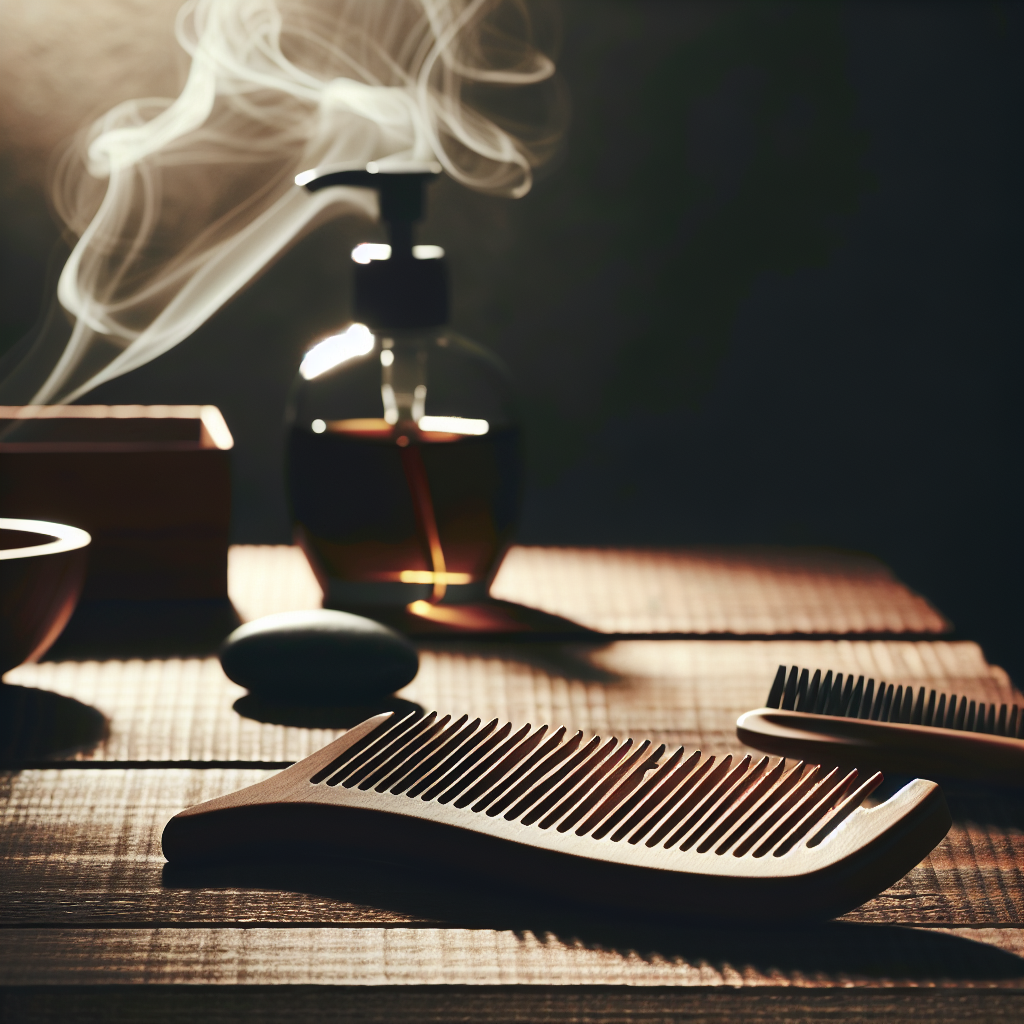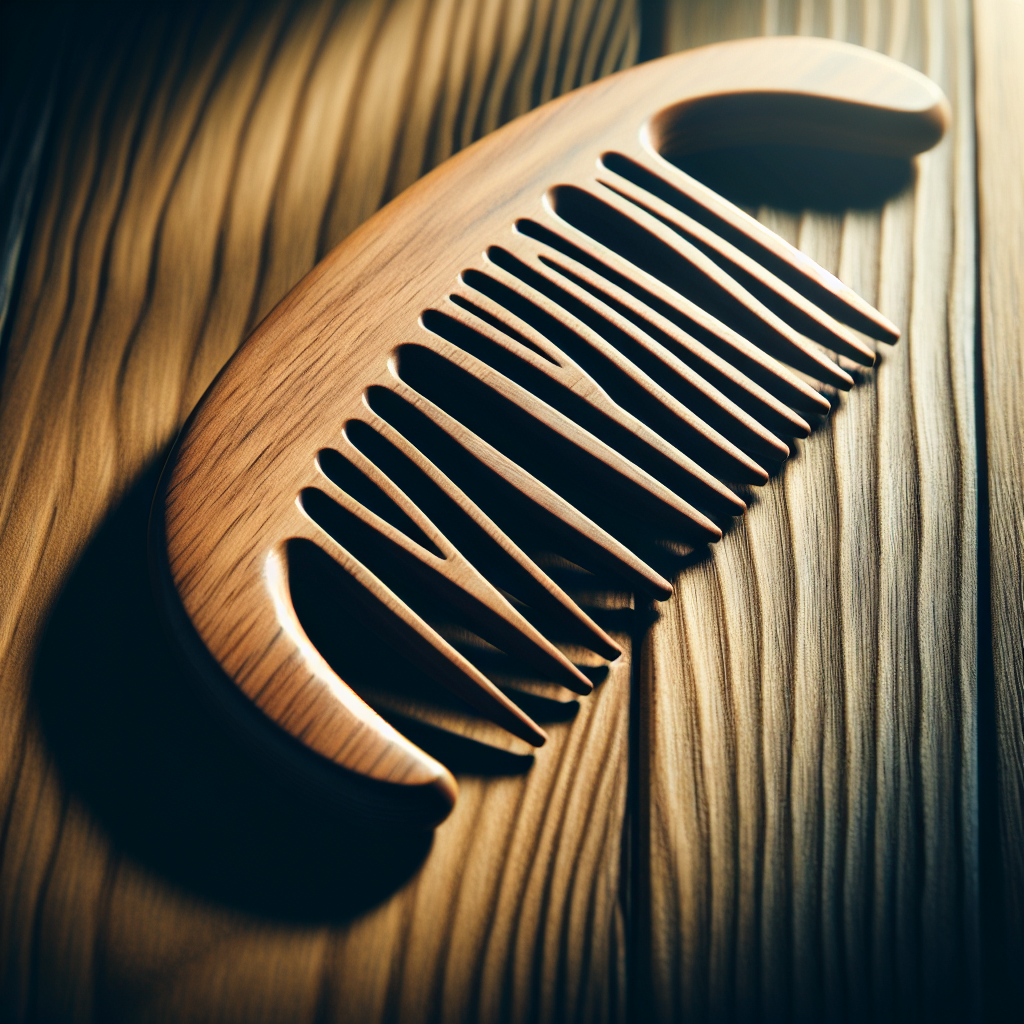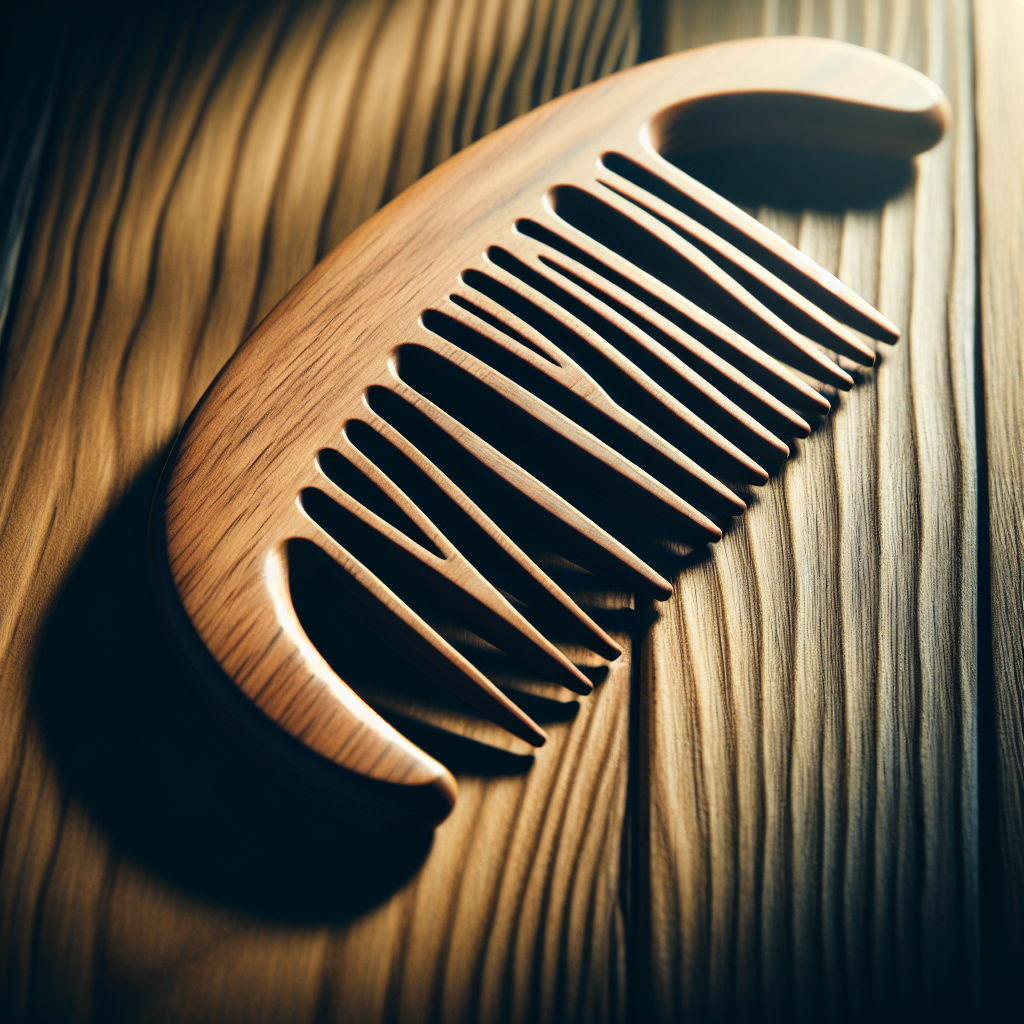So, you’ve always dreamed of growing a luscious, full beard, but you haven’t quite been blessed with the genetics for it. You’ve heard whispers of a magical elixir called black castor oil, rumored to work wonders in promoting beard growth. But, before you invest your time and money into this seemingly miraculous product, you’re left wondering, does it really work? In this article, we’ll take a close look at the effectiveness of black castor oil for promoting beard growth and uncover whether it’s truly the secret ingredient for achieving the beard of your dreams.
Understanding Black Castor Oil
What is black castor oil?
Black castor oil is a type of castor oil that is derived from the seeds of the castor plant (Ricinus communis). It is distinct from regular, or clear, castor oil due to its unique manufacturing process. Black castor oil starts with the roasting of castor beans before they are pressed to extract the oil. This roasting process results in the dark, rich color and smoky aroma characteristic of black castor oil.
How is black castor oil different from regular castor oil?
The key difference between black castor oil and regular castor oil lies in their manufacturing processes. Regular castor oil is made by cold-pressing the castor beans, while black castor oil is made by roasting the beans before pressing. This roasting process is believed to enhance the oil’s nutrient content and result in a thicker consistency. As a result, black castor oil is often considered to be more potent and beneficial for hair growth than regular castor oil.
Historical uses of black castor oil
Black castor oil has a long history of use in various cultures around the world. It has been used for centuries in traditional Ayurvedic and African remedies for promoting healthy hair growth. In Jamaica, black castor oil is particularly popular and has been used for generations to nourish and strengthen the hair and scalp. It has also been used topically for its moisturizing and soothing properties, making it a versatile oil with a wide range of historical uses.
Factors Affecting Beard Growth
Genetics
Genetics play a significant role in determining the rate and pattern of beard growth. The thickness, density, and even the color of your beard are largely determined by your genetic makeup. If you come from a family with a history of thick, full beards, you are more likely to have similar beard growth patterns. However, genetics are not the sole factor influencing beard growth, and other factors can also play a role.
Hormonal balance
Hormonal balance, particularly the levels of testosterone, is another crucial factor in beard growth. Testosterone is a hormone responsible for regulating various bodily functions, including hair growth. It plays a significant role in the development of facial hair during puberty and continues to influence beard growth throughout adulthood. An imbalance in testosterone levels can affect beard growth, potentially leading to sparse or slow-growing facial hair.
Nutrition
Proper nutrition is essential for overall health, including the health and growth of your beard. Nutrients such as vitamins A, C, E, and B vitamins, as well as minerals like zinc and biotin, are crucial for promoting healthy hair growth. A balanced diet that includes a variety of fruits, vegetables, whole grains, lean proteins, and healthy fats can provide the necessary nutrients to support optimal beard growth.
Stress levels
Stress can have a significant impact on beard growth. High levels of stress can disrupt hormonal balance, leading to potential hair loss or inhibited beard growth. Finding healthy ways to manage and reduce stress, such as through exercise, meditation, or engaging in hobbies, can positively influence beard growth and overall well-being.

The Science behind Beard Growth
How does hair growth work?
Understanding how hair growth works is essential to grasp the science behind beard growth. Hair growth occurs in cycles, including the anagen (growth) phase, catagen (transitional) phase, and telogen (resting) phase. During the anagen phase, new hair is formed at the hair follicle and grows in length. The length of this phase determines the potential length that hair can grow. Facial hair, including the beard, typically has a shorter anagen phase compared to scalp hair, resulting in shorter growth cycles.
Role of testosterone in beard growth
Testosterone plays a critical role in stimulating and promoting beard growth. During puberty, testosterone levels increase, leading to the development of secondary sexual characteristics, including facial hair growth. Testosterone acts on hair follicles to increase their size and stimulate the production of thicker, coarser hairs. However, it is important to note that testosterone alone is not the sole factor determining beard growth, as other hormones and genetic factors also play a role.
Impact of DHT on beard growth
Dihydrotestosterone (DHT), a derivative of testosterone, is another hormone that affects beard growth. DHT is produced when testosterone interacts with an enzyme called 5-alpha reductase. It binds to androgen receptors in hair follicles, making them more sensitive to the effects of testosterone. Increased levels of DHT can promote beard growth and contribute to the development of thicker, fuller facial hair.
Other factors influencing beard growth
Besides genetics and hormones, various other factors can influence beard growth. Age, overall health, lifestyle habits, and even environmental factors can impact the rate and quality of beard growth. Taking care of your skin, maintaining good hygiene, and adopting a healthy lifestyle can help optimize beard growth.
Claims about Black Castor Oil
Promotes hair growth
One of the most common claims about black castor oil is its ability to promote hair growth, including beard growth. Advocates of black castor oil believe that its unique nutrient profile, which includes fatty acids, antioxidants, and vitamins, can nourish and strengthen the hair follicles, encouraging healthy and robust hair growth. While anecdotal evidence and personal testimonials support this claim, scientific studies are limited.
Strengthens hair follicles
Another claim associated with black castor oil is its ability to strengthen hair follicles. Black castor oil is believed to penetrate deep into the hair shaft and follicles, providing essential nutrients that promote strength and resilience. This strength can help reduce hair breakage and optimize the overall health of the beard.
Moisturizes and conditions the beard
Black castor oil is also claimed to be an effective moisturizer and conditioner for the beard. Its thick and rich consistency can provide intense hydration, helping to nourish and soften the beard hair. Additionally, black castor oil is said to soothe and moisturize the underlying skin, reducing dryness and itchiness often associated with growing a beard.
Prevents hair breakage
Due to its purported strengthening properties, black castor oil is believed to help prevent hair breakage, including split ends and beard hair damage. By fortifying the hair shafts and reducing brittleness, black castor oil may contribute to a healthier and more robust beard.
Reduces inflammation and irritation
Black castor oil is also claimed to possess anti-inflammatory and soothing properties that can alleviate inflammation and irritation on the skin. Irritation and inflammation in the beard area can impede hair growth and lead to discomfort. Black castor oil’s potential anti-inflammatory effects may promote a healthier environment for hair growth.

Research on Black Castor Oil for Beard Growth
Limited scientific studies
While there is a lack of extensive scientific studies specifically focusing on black castor oil’s effects on beard growth, some research has explored its potential benefits for hair growth in general. These studies indicate that castor oil, including black castor oil, may have properties that support hair growth by nourishing the hair follicles and reducing inflammation. However, more research is needed to provide conclusive evidence on its effectiveness for beard growth.
Anecdotal evidence
Anecdotal evidence and personal testimonials from individuals who have used black castor oil for beard growth suggest positive results. Many report that regular application of black castor oil has resulted in thicker, fuller beards and improved overall beard health. While this type of evidence should be taken with caution, it highlights the positive experiences of many individuals who believe in the potential of black castor oil for beard growth.
Effectiveness on different beard types
Effectiveness can vary depending on individual factors such as hair type, genetics, and overall health. While some individuals may experience significant improvements in their beard growth with black castor oil, others may see more modest results. It is important to note that individual responses may vary, and it may take consistent and prolonged use of black castor oil to observe noticeable changes.
Other potential benefits
Apart from its potential for promoting beard growth, black castor oil may offer other benefits for the beard and skin. Its moisturizing properties can help combat dryness and itching, while its fatty acid content may nourish and improve the overall health of the hair and skin. Additionally, black castor oil’s potential anti-inflammatory effects may be beneficial for individuals with sensitive or irritated skin.
How to Use Black Castor Oil for Beard Growth
Choosing the right black castor oil
When selecting black castor oil for beard growth, it is crucial to choose high-quality, 100% pure oil without any additives or fillers. Look for cold-pressed or organic options to ensure the oil retains its beneficial properties. Additionally, consider the consistency of the oil, as some individuals may prefer a lighter or thicker texture based on personal preference and beard type.
Patch test and safety precautions
Before applying black castor oil to your entire beard, it is recommended to perform a patch test on a small area of skin. Apply a small amount of oil and monitor for any adverse reactions or skin sensitivity. If no negative reactions occur after 24-48 hours, it is generally safe to use black castor oil for beard growth. However, if any irritation or allergic reactions arise, discontinue use and consult a healthcare professional.
Application methods
There are several methods for applying black castor oil to the beard. One common method is to pour a small amount of oil onto the palm of your hand and massage it into the beard, making sure to thoroughly distribute the oil from the roots to the ends of the hairs. Alternatively, you can use a clean dropper or a beard brush to apply the oil directly to the beard, ensuring even coverage. Experiment with different application methods to find the one that works best for you.
Frequency of application
The frequency of application will depend on personal preference and the needs of your beard. Some individuals may choose to apply black castor oil daily, while others may opt for every other day or a few times a week. It is important to avoid over-application, as excessive oil on the beard can lead to a greasy appearance. Start with a small amount and adjust the frequency based on your beard’s needs.
Combining black castor oil with other ingredients
Some individuals prefer to combine black castor oil with other beneficial ingredients to enhance its effects on beard growth. Coconut oil, jojoba oil, and essential oils such as cedarwood or rosemary are popular additions that can provide additional moisture and promote healthy hair growth. However, it is advisable to perform a patch test when using new combinations of ingredients to ensure compatibility and avoid any adverse reactions.
Expert Opinions on Black Castor Oil
Views of dermatologists
Dermatologists have differing opinions on the effectiveness of black castor oil for beard growth. While some dermatologists believe that castor oil, including black castor oil, may have the potential to stimulate hair growth, others argue that there is limited scientific evidence to support its efficacy. Dermatologists often recommend a holistic approach to beard growth, including proper nutrition, grooming practices, and maintaining overall health.
Experiences of barbers
Barbers, who are often skilled in taking care of facial hair, may have valuable insights based on their experiences with clients. Some barbers advocate for black castor oil as part of a comprehensive beard care routine. They believe that regular use of black castor oil can help promote healthier, fuller beards and improve the overall appearance of the facial hair. Consulting with a knowledgeable barber can provide personalized advice on incorporating black castor oil into your beard care regimen.
Opinions from bearded individuals
The opinions of individuals who have personally used black castor oil for beard growth can provide valuable insights. Many bearded individuals have reported positive experiences and noticeable improvements in beard growth and health after incorporating black castor oil into their routine. Their opinions highlight the potential benefits of black castor oil, although it is important to remember that individual results may vary.
Possible Side Effects and Risks
Allergic reactions
While black castor oil is generally considered safe, some individuals may have an allergic reaction to the oil. Symptoms of an allergic reaction may include redness, itching, rash, or swelling. It is important to perform a patch test before applying black castor oil to the entire beard to rule out any potential allergies.
Skin irritation or sensitization
In rare cases, black castor oil may cause skin irritation or sensitization. This may occur due to an individual’s sensitivity to the oil or an allergic reaction. If you experience significant skin irritation, redness, or discomfort after using black castor oil, discontinue use and consult a healthcare professional.
Clogged pores
Using excessive amounts of black castor oil or failing to properly cleanse the beard and skin can contribute to clogged pores. Clogged pores can lead to acne breakouts or folliculitis, which is the inflammation of hair follicles. To minimize the risk of clogged pores, ensure that the oil is evenly distributed through the beard and practice proper hygiene.
Unwanted facial hair growth
Some individuals may notice increased hair growth in areas where black castor oil is applied regularly. While this can be desirable for beard growth, it may cause unwanted hair growth in other areas of the face, such as the cheeks. Be mindful of this potential side effect and adjust your application technique accordingly.
Alternative Remedies for Beard Growth
Biotin supplements
Biotin, a B vitamin, is often touted for its potential benefits for hair growth, including beard growth. Biotin supplements are available over-the-counter and are commonly used by individuals looking to optimize their hair health. However, it is important to consult with a healthcare professional before starting any supplements to ensure they are appropriate for your individual needs.
Coconut oil
Coconut oil is another popular natural remedy for promoting healthy hair growth, including beard growth. It has moisturizing properties that can help prevent dryness and breakage, making it a beneficial addition to a beard care routine. Like black castor oil, coconut oil can be applied directly to the beard and skin, or combined with other ingredients for added benefits.
Essential oils
Certain essential oils, such as cedarwood and rosemary, are believed to have stimulating effects on hair growth. When combined with a carrier oil like black castor oil, these essential oils may provide additional support for beard growth. However, it is important to dilute essential oils properly and perform a patch test to avoid skin irritation or allergic reactions.
Vitamins and minerals for beard growth
A balanced diet that includes vitamins and minerals essential for hair health can aid in optimizing beard growth. Nutrients such as vitamins A, C, E, and B vitamins, as well as minerals like zinc and biotin, can promote healthy hair growth. Including foods rich in these nutrients, such as fruits, vegetables, whole grains, lean proteins, and nuts, in your diet can support beard growth from within.
Conclusion
Black castor oil is a popular natural remedy with claims of promoting beard growth and improving overall beard health. While scientific research on its efficacy for beard growth is limited, anecdotal evidence and personal experiences suggest positive results. Black castor oil’s unique manufacturing process, nutrient profile, and potential moisturizing and anti-inflammatory properties make it an intriguing option for individuals looking to enhance their beard growth journey. However, it is important to remember that individual responses may vary, and results may take time and consistent use to manifest. Consulting with a healthcare professional or a knowledgeable barber can provide personalized guidance on incorporating black castor oil into your beard care routine. Ultimately, taking a holistic approach to beard growth, including maintaining good overall health, proper grooming practices, and nourishing the body from within, can contribute to optimal beard growth and overall well-being.
